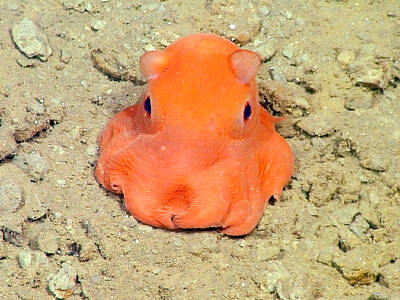Noise pollution is a frequently underestimated environmental hazard. While hearing loss is the best-known outcome associated with noise, emerging research is uncovering how noise affects our health in other ways. From impaired memory and sleep disturbances to cardiovascular problems, the impact of noise is profound.
For a start, unpleasant or excessively loud sounds can lead to stress and divert attention. Even everyday noises, such as those caused by traffic, lawnmowers, and construction work, can interfere with cognitive functions and elevate stress levels. “Our ears capture sound, but we hear with our brains,” explains Wei Sun, an audiology researcher at the University at Buffalo in the US. This statement suggests that noise not only affects our ears but also disturbs our brain processes. In noisy environments, the brain must work harder to filter out unnecessary sensory input, leading to mental fatigue. This cognitive overload is especially evident in educational settings. Studies have shown that students in noisy classrooms struggle with reading comprehension, memory retention, and test performance.
Unfortunately, noise-induced stress affects more than just the brain. Chronic stress is a risk factor for many health issues, including anxiety, depression, headaches, and weakened immune systems. Alarmingly, research has even linked nighttime traffic noise to cardiovascular problems. A 2023 study found that participants exposed to recorded traffic sounds during sleep exhibited higher blood pressure and more signs of vascular stress the next morning.

Photo: Freepik / 照片:Freepik
We should thus, all things considered, take proactive steps to shield our hearing. We can, for example, wear earplugs in loud environments, such as during concerts or in subway stations. Lowering the volume on headphones is another simple yet effective measure. Additionally, incorporating stress-relief strategies, like regular exercise, can help counter the negative effects of unavoidable noise. By taking these steps, we can reduce its harmful impact and improve our overall well-being.
噪音污染是一種經常被低估的環境危害。雖然聽力損失是與噪音相關最為人知的後果,但新興研究正在揭示噪聲如何以其他方式影響我們的健康。從記憶受損和睡眠干擾到心血管問題,噪音的影響深遠。
首先,令人不快或過於響亮的聲音可能會導致壓力並分散注意力。即使是日常噪音,例如由交通、割草機和建築施工引起的噪音,也會干擾認知功能並提升壓力程度。美國紐約州立大學水牛城分校的聽力學研究員 Wei Sun 解釋:「我們的耳朵捕捉聲音,但我們用大腦來聽。」這句話表明噪音不僅影響我們的耳朵,還干擾我們的大腦過程。在嘈雜的環境中,大腦必須更加努力地過濾掉不必要的感官輸入,從而導致精神疲勞。這種認知超負荷在教育環境中尤為明顯。研究顯示,在嘈雜的教室裡,學生在閱讀理解、記憶保留和考試表現上都有困難。
不幸的是,噪音引起的壓力不僅僅影響大腦。慢性壓力是許多健康問題的風險因素,包括焦慮、抑鬱、頭痛和免疫系統減弱。令人擔憂的是,研究甚至將夜間交通噪音與心血管問題聯繫在一起。西元 2023 年的一項研究發現,睡眠時暴露於錄製的交通噪音的參與者,第二天早上血壓更高,血管壓力跡象也更多。
因此,考慮到這些因素,我們應該採取積極措施來保護我們的聽力。例如,在音樂會或地鐵站等嘈雜的環境中,我們可以佩戴耳塞。將耳機音量調低也是一個簡單有效的措施。此外,結合定期運動等減壓策略,可以幫助抵消不可避免的噪音帶來的負面影響。藉由採取這些步驟,我們可以減少噪音的有害影響,並改善整體健康。
MORE INFORMATION
hazard n. 危險
cardiovascular adj. 心血管的
lawnmower n. 割草機
audiology n. 聽力學
overload n. 超載;超負荷
vascular adj. 血管的
proactive adj. 主動的;積極的
headphones n. 耳機
well-being n. 安康
KEY VOCABULARY
1. peril n. 危險
The hikers were unaware of the peril that awaited them at the edge of the cliff.
登山客沒有意識到懸崖邊的危險在等待著他們。
2. underestimate vt. 低估
Many people underestimate how long it takes to learn a new language.
許多人低估了學習一門新語言所需的時間。
3. impaired adj. 受損的
Terry’s hearing is impaired due to years of working in a noisy environment.
由於多年在嘈雜的環境中工作,泰瑞的聽力受損了。
4. disturbance n. 干擾 disturb vt. 干擾;打斷
The loud construction next door caused a major disturbance during our meeting.
隔壁的施工噪音對我們的會議造成了重大干擾。
5. divert vt. 轉移(注意力);使轉向
The loud music diverted Kevin’s attention from his homework. 吵鬧的音樂轉移了凱文做作業的注意力。
6. cognitive adj. 認知的
As people age, some people experience a decline in cognitive function. 隨著年齡增長,有些人的認知功能會下降。
7. induce vt. 導致
Certain medications can induce drowsiness, so be careful when driving. 某些藥物可能會導致嗜睡,因此開車時要小心。
8. immune adj. 免疫的
Some people are naturally immune to the virus, while others are more vulnerable.
有些人天生對這種病毒免疫,而其他人則較為脆弱。
9. overall adj. 整體的;全面的
The overall performance of the team was excellent, despite a few mistakes.
儘管有一些錯誤,這支隊伍的整體表現仍然出色。
學習音檔: https://magazine.english4u.net/Magdata/menu/dhkt1
《空中美語》雜誌APP免費下載: https://www.english4u.net/apps/index.aspx
免費收聽當月《空中美語》雜誌課文朗讀及解析 !
文章由AMC空中美語授權使用: https://www.english4u.net

The deep waters off the coast of California are home to a bizarre creature: the flapjack octopus. This creature, known for its pancake-like appearance, spreads itself thin on the seabed as a clever survival strategy, making it difficult for predators to spot and capture it. With its unique, umbrella-shaped body formed by webbed arms, the flapjack octopus moves through the water in a graceful manner. It propels itself forward by rhythmically moving its body and contracting its webbed arms. Its pair of ear-like fins, which move independently yet with remarkable coordination, also help it explore the deep-sea environment. These

Bilingual Story is a fictionalized account. 雙語故事部分內容純屬虛構。 I stand by the Miluo River as dusk falls. The court betrayal is too much. I served Chu with loyalty. I forged alliances and fought corruption. But the whispers of jealous courtiers, the murmurs of treason, spoke louder. The king cast me out. The water looks calm. It promises peace. I step in. The river is cold against my legs. I hear shouts behind me — fishermen calling my name. I keep walking. The calls grow louder, but I do not turn around. The water rises to my chest. It pulls at me. I

In Taiwan, people can use a platform to rent a power washer for a weekend or share unused garage space for someone’s storage needs. These are examples of the sharing economy, a consumption model that has gained widespread adoption worldwide. This approach allows people to rent or share assets like cars, homes or even services, typically through online platforms. This innovative model poses a simple yet powerful question: why purchase infrequently used items when sharing is more practical? By making useful but idle resources accessible, the sharing economy turns them into sustainable opportunities. Internationally, platforms like Airbnb and Uber have popularized

Continued from yesterday(延續自昨日) https://www.taipeitimes.com/News/lang Many people may be familiar with flapjack octopuses thanks to Pearl, a charming character from the Pixar film Finding Nemo. However, her portrayal presents several scientific inaccuracies. In reality, flapjack octopuses are deep-sea creatures, which are unsuitable for the brightly lit shallow reef environment depicted in the film. Their primary defense mechanism relies on their reddish coloration, which would be ineffective in the well-lit shallows. Pearl’s famous line, “You guys made me ink,” is another fictional detail that is not consistent with the observed actions of real flapjack octopuses. As common as it is in many other octopus